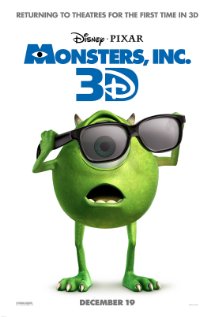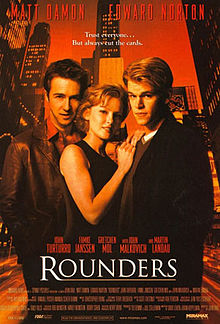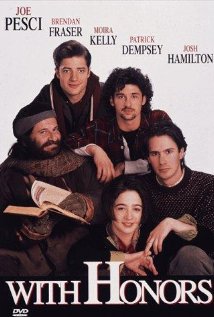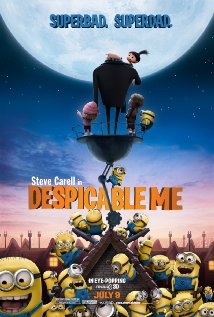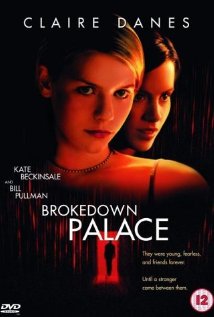Tags
be yourself, Brittany Murphy, catechesis, Catholic, cinema, Comedy, Conversion, Drama, faith, friend, God, Healing, Japanese, John the Baptist, Love, ministry, movie, movie ministry, Ramen, reconciliation, talking to God, The Ramen Girl
This is my very first post on Cinema Catechesis… I’m reposting it with some updates it was a movie I’d never heard of, but was really cute… In fact, I think I’ve watched it a couple of times since. It is however, one that you can’t really watch while you’re doing other things due to the large number of subtitles. So make sure you can be fully attentive if you decide to give it a try.
Abby: I don’t know anything about love. Every time I feel it, it’s gone, it disappears and all I have left is pain and sadness.
 Sometime last week, my husband and I decided to try out an old Brittany Murphy flick The Ramen Girl. On the surface, it’s about a girl, Abby, who follows her boyfriend to Japan – who then leaves her there.
Sometime last week, my husband and I decided to try out an old Brittany Murphy flick The Ramen Girl. On the surface, it’s about a girl, Abby, who follows her boyfriend to Japan – who then leaves her there.
Hurt and confused, Abby stumbles into the Ramen shop across the street. The owners, Maezumi and his wife, think she is homeless or crazy so they feed her in the hopes that she’ll go away. But, somehow, the Ramen fills more than her belly, as she finds consolation in it. She goes back the next day, and the Ramen makes even the saddest patrons laugh. So she decides that she wants to learn the art of Ramen so that she can bring that joy to others.
When I first sat down to write this post, I had no idea that I could pull much out of it. It seems like a pretty straight-forward “fish out of water” type story. However, as I started writing, I was amazed at how deep it really could be. Imagine that the Ramen Shop owner, Maezumi, is Jesus and Abby becomes a disciple, so to speak. So, in looking at this film through the lens of Catechesis, what can we learn?
Disciple on a Journey: We are called to “pick up our cross and follow Jesus.” No one ever said it would be easy, or that at points we wouldn’t feel alone. So, while what got Abby to Japan might have been less than honorable, she passes up the easy road and it’s the challenges she faces that make her stronger in the process. You might even take the leap that the boyfriend was like a shady John the Baptist – and leads Abby to Jesus, although indirectly. So, Abby follows her boyfriend, but becomes a disciple on a journey that takes her much farther than the relationship with the boyfriend would have ever been. And I think we can all agree that the boyfriend isn’t fit to untie Maezumi’s sandals!
Sometimes we have to go back to move forward: When she sets her mind to learn Ramen, Maezumi gives Abby a LONG list of chores. From washing dishes to scrubbing toilets, cleaning tables and washing windows, she learns the value of work, although she isn’t quiet about her distaste for it. For Maezumi, it’s the basics. It’s those things that don’t seem to be related to the end goal, but are actually foundational building blocks. You can have the best food in the whole world, but if the surrounds are dingy, its unlikely people will give it the time of day. So maybe it’s those prayers or scripture passages we don’t want to memorize, maybe it’s basic teachings we don’t think we agree with, but they are all part of the big picture. They all are ingredients in our Ramen.
Sometimes we feel like God must not speak our language: There is a huge language barrier between Abby and Maezumi. With the help of a dictionary and the occasional interpreter they muddle through, but it is hard, frustrating, and the series of exchanges, though heated, can be quite funny. There’s a lesson here though. You can take it at face value: a stranger in a strange land. However the thing that really pops to mind is that frustration and difficulty we sometimes feel talking to God. We find ourselves on one side spewing out what we think we need and what we expect from Him, all the while feeling that He doesn’t really understand us and often wondering if he’s even listening. Then on the other hand, how often is He trying to talk to us, but we’re too busy trying to get our point across to listen to Him? So check out those exchanges… how do they get resolved or do they?
Put a little of yourself into all you do! We also learn that all the choice ingredients mean nothing if there’s there’s not a piece of ourselves in it. Maezumi can’t put his finger on what is missing from Abby’s ramen, so he takes her to his mother. Now, this is a deviation from our analogy of Maezumi as Jesus, because we don’t ever see Jesus asking Mary for advice, but he does entrust us to her. “Son, behold your mother. Mother behold your son.“ Yet even that is stretching it for this one, so rather than try to rationalize any further, we’ll get to the point of the exchange: We can talk the talk, but if our hearts aren’t in it, what are we doing it for? We must believe it and put ourselves out there. Because ultimately, aren’t we all looking for the Grand Master’s blessing?!
Reach out and reconcile: Another point is you can make with this movie is the reconciliation Abby brings about for Maezumi. You see, Maezumi raised his son teaching the art of ramen. However, his son rejects it, despite his great gifts, to be an ITALIAN chef! Maezumi has such a difficult time with this decision. And, in a very un-Jesus-like fashion, Maezumi turns his back and holds in the hurt. In an effort not to ruin it, although it is a minor part of the movie, I’ll hold back the hows and whys here. But hopefully it inspires us to reach out a loving hand to someone we need to reconcile with.
Share your gifts! **Spoiler Alert!!!** The last point for me is that once Abby has mastered the art of Ramen, she doesn’t stay in Japan. She moves back home, but takes this gift and shares it with others back home in New York. It appears that her place is booming and business is good. Therefore, our lesson is that called to share our gifts with the world, spread the good news of Jesus. I sort of wish I got to see more of how she continues on, but, that is left to our imagination.
Be forewarned, this film does have some scenes depicting alcohol use and Abby does have a brief romance including a bedroom scene. But, if memory serves, it does deserve the PG-13 rating, but isn’t embarrassing enough to worry about showing in a group setting assuming they’re all at least 13.
God Bless!
For more information on the movie, check out http://www.imdb.com/title/tt0806165




